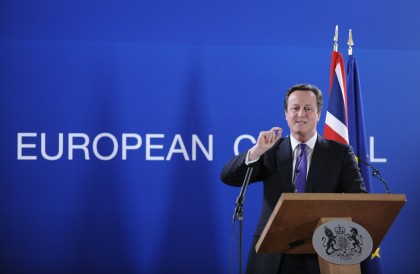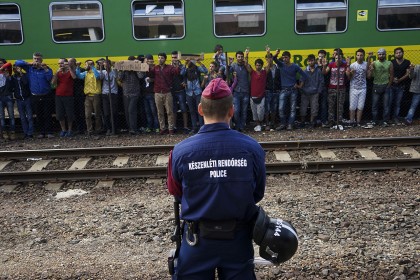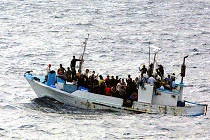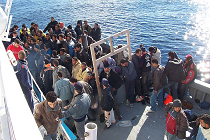 Courtesy: ukrep.be
Courtesy: ukrep.be
As the referendum on the UK’s membership of the EU draws near, predicting the outcome remains difficult. While the potential impact of Brexit on the UK has been discussed at length, a vote to stay in the EU could have implications for the UK’s domestic political situation as well as its future relationship with the EU.
 Courtesy: GeenPeil
Courtesy: GeenPeil
The recent referendum in the Netherlands on the European Union’s Association Agreement with Ukraine raises important questions about the EU’s ability to reconcile ostensibly popular national opinion with the principles of a multi-nation political union.
 Courtesy: Wikipedia
Courtesy: Wikipedia
While the closing of borders to refugees in Europe and West Asia could be interpreted as proof that national borders are more important now than ever, the sheer numbers of refugees make strengthening borders a severely inadequate solution.
 Courtesy:
Courtesy:
Contrary to some current commentary, NATO has remained relevant after the post-Cold War period, largely due to the perceptions it still engenders. While its symbolic power still endures, a rapidly changing international order could make it obsolete in the near future, as new narratives take its place.
 Courtesy: Quartermaster/Wikimedia Commons
Courtesy: Quartermaster/Wikimedia Commons
Like European countries, Australia too has seen an influx of asylum seekers over the last decade. However, domestic political compulsions have seen the new Australian government send back the refugees to their turmoil ridden countries. Considering international law and its responsibilities Canberra needs to revisit its refugee policy
 Courtesy: Vito Manzari/Wikimedia Commons
Courtesy: Vito Manzari/Wikimedia Commons
A refugee policy that absolves more capable and resource rich nations of any responsibility towards transnational asylum seekers is archaic and has lived beyond its time. Keeping in mind the EU's receipt of the Nobel Peace Prize for advancing causes of peace, reconciliation, democracy and human rights, it is incumbent upon it to set new standards and reform its refugee policy
 Courtesy: Flickr
Courtesy: Flickr
Eastern Europe has seen tensions rise, increasing violence and a hardening of stands. Only the softening of the stark “either/or” choice currently being demanded by western powers as well as Russia will put an end to the precarious tightrope walking of east European governments and prevent their citizens from becoming victims of increased regional instability








